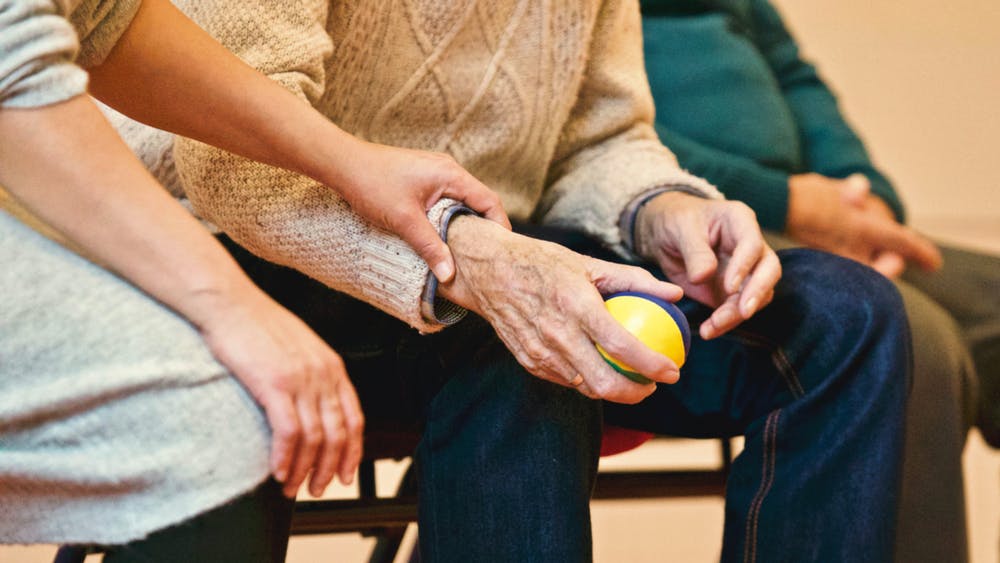Here's exactly how exercise benefits your mental health

We tend to have sedentary lifestyles these days, but this doesn’t mean we shouldn’t take the time to get moving and keep active.
It’s not just our desk-bound jobs that have made us inactive, the convenience of booking rides through various transport apps also means we don’t usually have to walk far to grab public transport.
Plus the convenience of online shopping has lessened the time we spend walking around shopping malls, looking for the best buys.
And, online food delivery services also means we don’t even have to leave the house to enjoy a tasty, hearty meal. What all this points to is the simple fact that we need to move more – to avoid the ‘sitting disease’ which comes hand in hand with all the above.
Regular exercise has proven benefits in weight loss as well as fighting (and reducing chances of getting) diseases such as diabetes and heart conditions. However, the benefits of exercise go beyond disease prevention – such as your mental health. Keep reading to find out how.

When you exercise, endorphins are released and this creates feelings of happiness and euphoria. Yes, we know this is somewhat ironic, seeing as how the happy feelings are a result of a bit of physical exertion. After all, the saying goes “no pain, no gain” right?
So, if you’re feeling down – or suffering from depression or anxiety – get out and get moving. You don’t even have to make a big commitment and sign up for a gym membership; just try to work out for at least 30 minutes, three to five times a week, doing activities like running, brisk walking, or even dancing.
Achieving at least 150 minutes of moderate exercise a week is just what the doctor ordered for your mental and physical improvement. You’ll soon feel the uplifted change in your mental state as well as seeing the results on your body too.

You’ll be pleased to know that exercising is the easiest way to get rid of your stress. In fact, it even goes one step further by boosting your ability to cope with mental tension. Also, your body temperature is raised when you exercise and this calms your nerves.
ALSO READ: 6 ways to manage your mental health during isolation

Exercising improves your memory and overall brain function too. This is because exercising increases your heart rate, which increases blood and oxygen flow to your brain.
It also encourages the production of hormones that stimulate the growth of brain cells. The older you get, the more important it becomes to exercise, as it leads to changes in your brain structure and function that increases mental function and lowers your risk of dementia.

The benefits of exercise on mental health go further than just making you feel less stressed. Mental performance is improved as a result of regular exercise and this leads to increased productivity when you’re in the office.
When you’re more alert, you’ll be able to concentrate better at work, as well as manage your time better too.

Many of us suffer from mood swings when we’re hormonal and often don’t know how to control them. Exercise is an immense help in this area.
Our mood takes a dip when oestrogen levels change throughout our menstrual cycle as it also affects our feel-good brain chemical, serotonin. The endorphins released when you exercise counter this situation, so you’ll feel happier and be in a better mood to face the rest of the day.
ALSO READ: The best home workouts to do, according to your mood

Getting a good night’s sleep is essential for your overall health and even to rejuvenate your skin (it’s called ‘beauty sleep’ for a reason). But it can be difficult to achieve good quality sleep each night, thanks to various physical, mental and emotional issues that could be plaguing you.
Exercise improves your sleep and also makes you feel less sleepy during the day. It’ll keep you more alert and active in the daytime, then give you better quality sleep when the night falls.
Your body’s core temperature is increased when you exercise so if you do this during the day (or even in the evening), your body will get the hint that it’s time to sleep when this temperature eventually falls a few hours later, making it easier for you to fall asleep.

If you’re exercising because you want to lose weight, every single kilo you lose will make you feel happier and more confident about yourself.
But even if weight loss is not your goal, exercise will still boost your self-confidence. When you’re physically stronger, your mental health benefits too, as this will lift your self-esteem, self-image and even your self-worth.
ALSO READ: She banished depression, anxiety, with exercise, better diet
This article was first published in Her World Online.